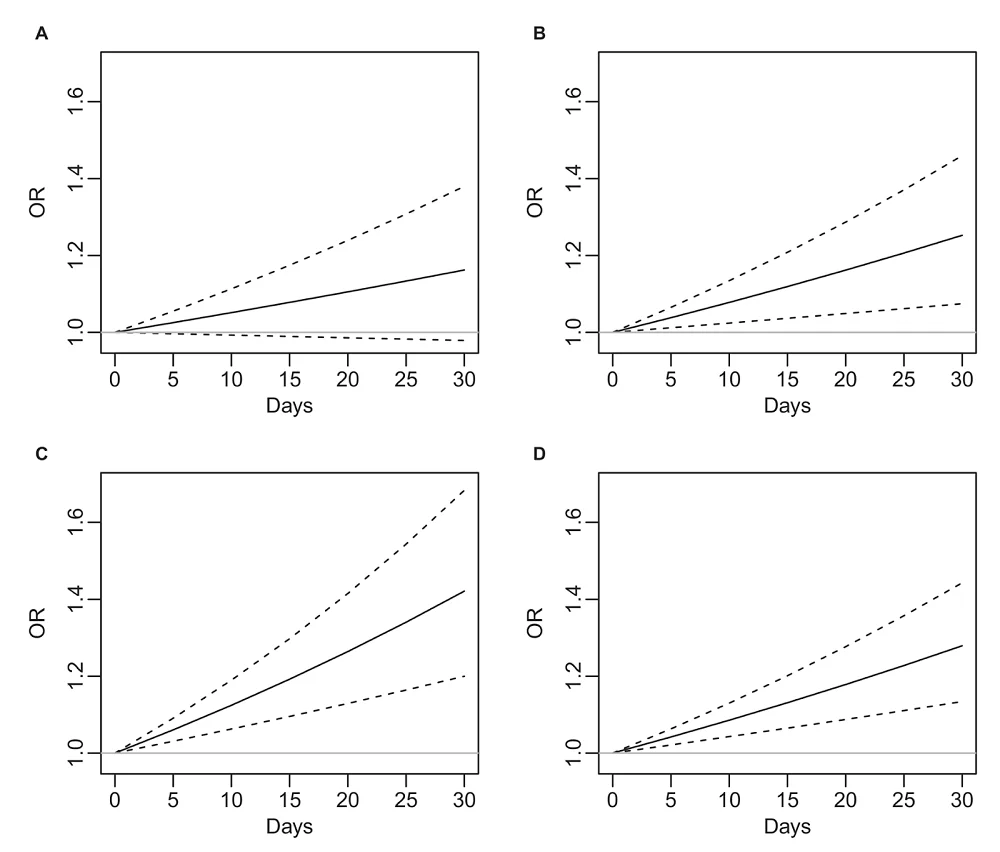According to a new study, cannabis consumption is associated with increased risks of coronary heart disease, stroke, and heart attack [1].
It’s growing popular, but is it good for you?
After decades of being banned and demonized, marijuana is making a huge comeback, thanks to a wave of legalization or decriminalization. Currently, weed is legal in 24 US states, almost half of the nation, and in several countries around the world.
This is coinciding with an unprecedented decline in tobacco use, which is probably the best thing that has happened in public health in decades. However, there’s an easy-to-spot similarity between tobacco and marijuana consumption – that’s right, both products are mostly smoked. Inhaling smoke, which consists of particulate matter, is considered a major factor in tobacco-related health problems.
Regardless of smoking, active substances in marijuana have been linked to health problems [2]. However, research into the health effects of any type of marijuana consumption is still in its infancy. Meanwhile, the perception of the harmfulness of cannabis use is decreasing, which makes getting to the truth even more urgent [3].
A new mega-study
This new study, published in the Journal of the American Heart Association, adds some new insights. It is based on the 2016-2020 data from the Behavioral Risk Factor Surveillance Survey, which encompassed more than 400,000 participants in 27 American states and 2 territories.
The survey was done by phone, relying on self-reporting, and the study was cross-sectional rather than prospective – that is, it only considered data on every participant at one point in time, which makes analyzing chronological trends impossible. However, the sheer size of the study is an advantage.
The participants, aged 18 to 74, were asked about their patterns of marijuana use, various other habits such as tobacco smoking, and the history of cardiovascular health outcomes (coronary heart disease, myocardial infarction, and stroke). The researchers accounted for confounding variables such as age, sex, race, BMI, diabetes, alcohol use, educational attainment, and physical activity.
4.0% of the respondents reported using cannabis daily, and 7.1% reported nondaily use, with the median being 5 days per month. 73.8% of current cannabis users reported smoking as their primary form of consumption.
Big increases in risk
The researchers found that marijuana use increased the odds of developing a cardiovascular condition in a dose-dependent manner. Daily cannabis use was associated with 25% higher odds of heart attack compared to non-users. The increase in the odds of stroke for daily users vs non-users was even higher at 42%.

A: coronary heart disease; B: myocardial infarction; C: stroke; D: composite outcome of CHD, MI, and stroke.
The research ran a separate analysis for younger adults: men younger than 55 years old and women younger than 65 years old. The rationale was that in a younger population, which is generally less prone to cardiovascular problems, the signal from cannabis use should be clearer. Indeed, in this group, the positive associations between cannabis use and cardiovascular problems grew even stronger.
In another important separate analysis, the researchers looked at never-smokers. Not being confounded by tobacco smoking, the associations grew stronger yet again. In men younger than 55 and women younger than 65 who never smoked tobacco, cannabis use increased odds of coronary heart disease by 2.36 times, of stroke by 2.4 times, and of any of the outcomes (CHD, MI, stroke) by 2.13 times.
“Our sample was large enough that we could investigate the association of cannabis use with cardiovascular outcomes among adults who had never used tobacco cigarettes or e-cigarettes,” said lead study author Dr. Abra Jeffers, a data analyst at Massachusetts General Hospital in Boston. “Cannabis smoke is not all that different from tobacco smoke, except for the psychoactive drug: THC vs. nicotine. Our study shows that smoking cannabis has significant cardiovascular risks, just like smoking tobacco. This is particularly important because cannabis use is increasing, and conventional tobacco use is decreasing.”
The researchers admit that their study has numerous limitations, starting with its cross-sectional design, and called for more rigorous, prospective cohort studies. Self-reporting is prone to incorrect recollection (recall bias). The large proportion of users being young is a potential confounding factor, given that atherosclerosis takes decades to evolve. Still, there is common sense behind this study: inhaling any products of combustion is probably not the best you can do for your health. It would be great to understand the health impact of edibles, but for that, they would need to become more popular.
Cannabis has strong, statistically significant associations with adverse cardiovascular outcomes independent of tobacco use and controlling for a range of demographic factors and outcomes. It remains positively associated with cardiovascular disease among the general population, and men <55 years old and women <65 years old, those who have never use tobacco cigarettes, and those who have never used tobacco cigarettes or e‐cigarettes. These data suggest that cannabis use may be a risk factor for cardiovascular disease and may be a risk factor for premature cardiovascular disease. Patients and policymakers need to be informed of these potential risks, especially given the declining perception of risk associated with cannabis use.
Literature
[1] Jeffers, A. M., Glantz, S., Byers, A. L., & Keyhani, S. (2024). Association of Cannabis Use With Cardiovascular Outcomes Among US Adults. Journal of the American Heart Association, e030178.
[2] Pacher, P., Steffens, S., Haskó, G., Schindler, T. H., & Kunos, G. (2018). Cardiovascular effects of marijuana and synthetic cannabinoids: the good, the bad, and the ugly. Nature Reviews Cardiology, 15(3), 151-166.
[3] Center for Behavioral Health Statistics and Quality. (2020). Results from the 2019 National Survey on Drug Use and Health: Detailed tables. Rockville (MD): Substance Abuse and Mental Health Services Administration




